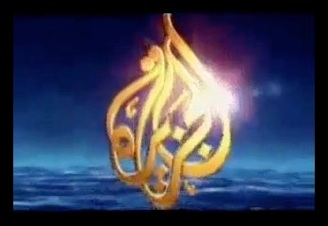Techno -- Determinism
BUilding a MECHANICAL tower of babel
September 2010
Afghanistan
Argentina
Australia
Bangladesh
Belgium
Brazil
Bulgaria
Cambodia
China
Columbia
Costa Rica
Cuba
Czechoslovakia
Denmark
Egypt
Estonia
Ethiopia
Venezuela
EuroNews
Finland
France
Georgia
Germany
Greece
Greenland
Grenada
Haiti
Honduras
Hungary
Iceland
India
Indonesia
Iran
Ireland
Italy
Jamaica
Japan
Kazakhstan
Kenya
Kosovo
Kurdistan
Lebanon
Malaysia
Malta
Mongolia
Morocco
Mozambique
Netherlands
Nigeria
North Korea
Norway
Philippines
Portugal
Russia
South Africa
South Korea
Spain
Sri Lanka
Switzerland
Thailand
Tibet
Turkey
Cultural Farming primarily examines North American TV: CNN, FOX News, MSNBC, CNBC, and CBC... all 24/7 news networks. These examinations are public ‘mediatugical’ experiments focusing upon how TVmedia content is produced and presented. But after six years of critical appropriation and remix, I took time to also examine international news presentation. The result startled me.
Worldwide, news production today is essentially identical. It is so, no doubt, because most all nations purchase very similar (if not identical) TVmedia production technologies, and then use these technologies with very similar intentions and techniques -- all gleaned by following North American TVmedia practice. But what results when our global media are constructed, produced and presented in quite similar ways? Do we begin to listen and to hear each other any better; or is nuance, specificity and regionality ‘leveled’ into a kind of identifiable, repetitive expectancy... into meaninglessness ...or worse, into false collective language?
North Korea and Greenland notwithstanding, below we find most all global TVmedia production meaningfully similar; but does this similarity impact meaning making? To suggest some imperializing connection to technological determinism, however, is to incite critical hair-pulling about the long-debunked theories of Marshall McLuhan, Neil Postman, Tom Friedman, Ray Kurzweil, among others. But this is too simple a response. Debates must resist binary good-bad arguments of technology. Rather, we MUST acknowledge that BOTH technology and its intentional usage CONDITION all our communication.
Regardless of national language or what is intended to be said, TVmedia production and presentation always speak first -- conditioning our communication. Indeed, imagine if worldwide TVmedia were always presented through sobbing tears, or lit by candlelight, or offered pornographically before the cameras, merely for sensationalist gain -- wouldn’t it condition overall notions of meaning, and in turn, condition society? How could it be otherwise? Think of a world hell-bent on accommodating the ubiquitous technologies of automobiles for their unquestionable mobility, speed, convenience, only to also discover a planet conditioned to endless car advertisements, oil exploitation and parking lots. Think of the obvious importance of the printing press and an educational system now so conditioned by books as to be unable to fully consider other means of scholarly research. Imagine a world where the only technological communication told is that which is ‘correctly’ media-conditioned. The issue I am trying to impress here is the importance of considering ‘how we do’ -- before we argue over interpretations of ‘what we have said or done’.
When much of what is technologically communicated looks, feels, sounds and informs through uniform practices and techniques, does it impede authentic communication? Does it resemble a kind of technological Tower of Babel where, as we reach toward the heavens through false abilities and achievements, our commonly conditioned language paradoxically leads us into ‘sin’... necessitating an eventual collapse and dispersal? See for yourself...
Al Jazeera
Throughout antiquity, the story of the Tower of Babel finds resonance. Below is but one translation -- Genesis 11:1-9 in the King James Version:
1 And the whole earth was of one language, and of one speech.
2 And it came to pass, as they journeyed from the east, that they found a plain in the land of Shinar; and they dwelt there.
3 And they said one to another, Go to, let us make brick, and burn them thoroughly. And they had brick for stone, and slime had they for mortar.
4 And they said, Go to, let us build us a city and a tower, whose top may reach unto heaven; and let us make us a name, lest we be scattered abroad upon the face of the whole earth.
5 And the Lord came down to see the city and the tower, which the children built.
6 And the Lord said, Behold, the people is one, and they have all one language; and this they begin to do; and now nothing will be restrained from them, which they have imagined to do.
7 Go to, let us go down, and there confound their language, that they may not understand one another's speech.
8 So the Lord scattered them abroad from thence upon the face of all the earth: and they left off to build the city.
9 Therefore is the name of it called Babel; because the Lord did there confound the language of all the earth: and from thence did the Lord scatter them abroad upon the face of all the earth.”


An American
resident of Canada, experimenting with new forms of critical media ethnography in Cultural Farming.































































